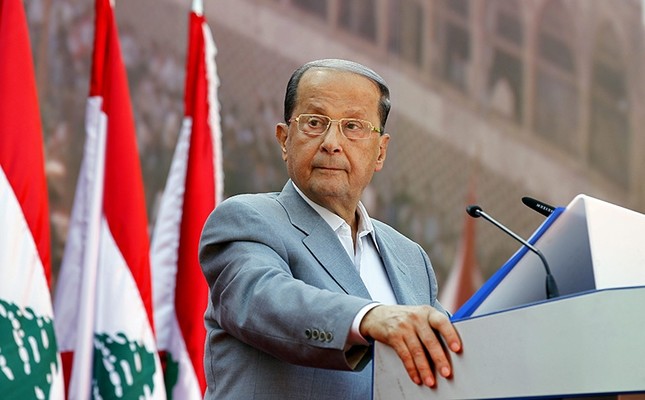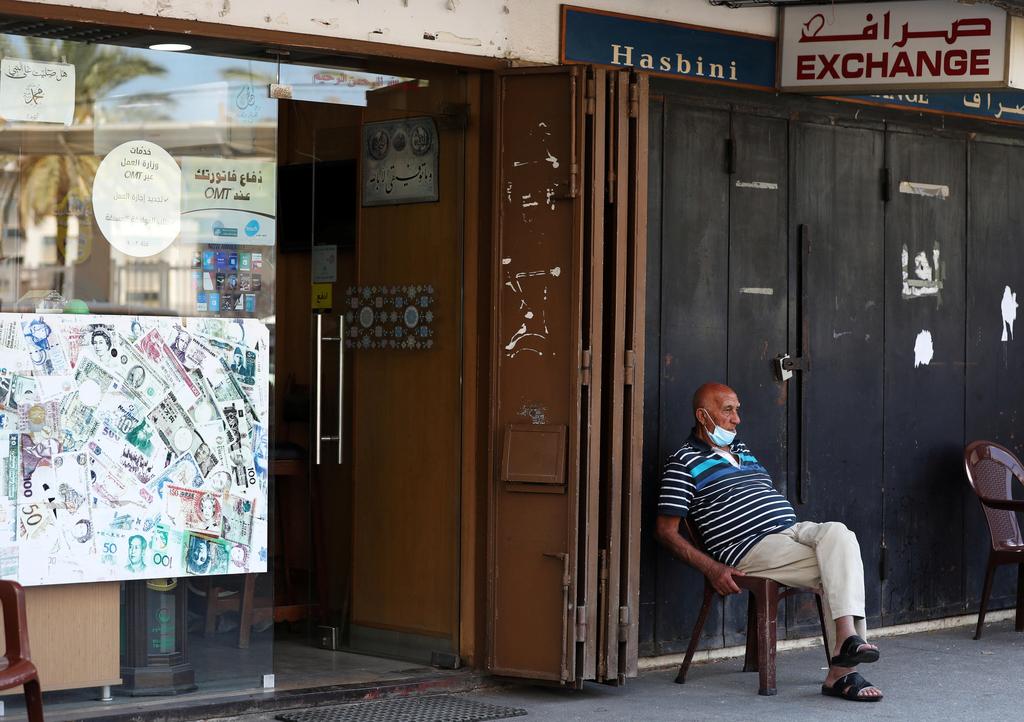Lebanese President Michel Aoun warned on Thursday of an "atmosphere of civil war" during the recent unrest in Lebanon and what he described as attempts to stir up sectarian tensions as a financial crisis sweeps the country.
Aoun, a Maronite Christian, was speaking at a meeting that he said was called to protect civil peace but which was boycotted by opponents including Sunni Muslim leader Saad al-Hariri and other ex-prime ministers who said it a waste of time.
The crisis is seen as the biggest threat to Lebanon's stability since the 1975-90 civil war. A 75% decline in the Lebanese pound since October has been reflected in soaring prices and savers have been frozen out of their deposits.
Aoun's comments referred partly to confrontations in Beirut earlier this month that opened old sectarian faultlines between Shi'ite Muslims and Christians and between Shi'ites and Sunnis.
"We touched the atmosphere of civil war in a worrying way. Movements replete with sectarian tensions were launched in a suspicious manner," Aoun said.
5 View gallery
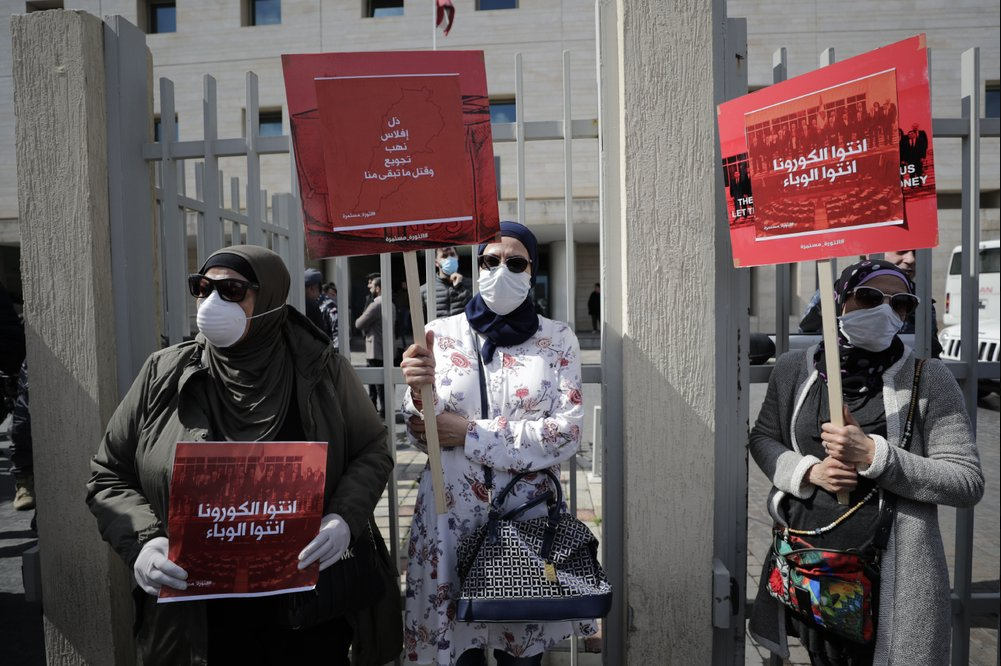

Anti-government protesters in Beirut hold banners reading: 'You are the coronavirus, you are the epidemic,' and 'Humiliation, bankruptcy, looting, starving and killing the rest of us'
(Photo: AP)
Lebanon's sectarian power-sharing system requires the president to be a Maronite, the prime minister to be a Sunni, and the parliament speaker to be a Shi'ite.
Prime Minister Hassan Diab, appointed in January with backing from Aoun, the powerful Iranian-backed Shi'ite group Hezbollah and Parliament Speaker Nabih Berri, said the exchange rate was the only concern for Lebanese.
5 View gallery
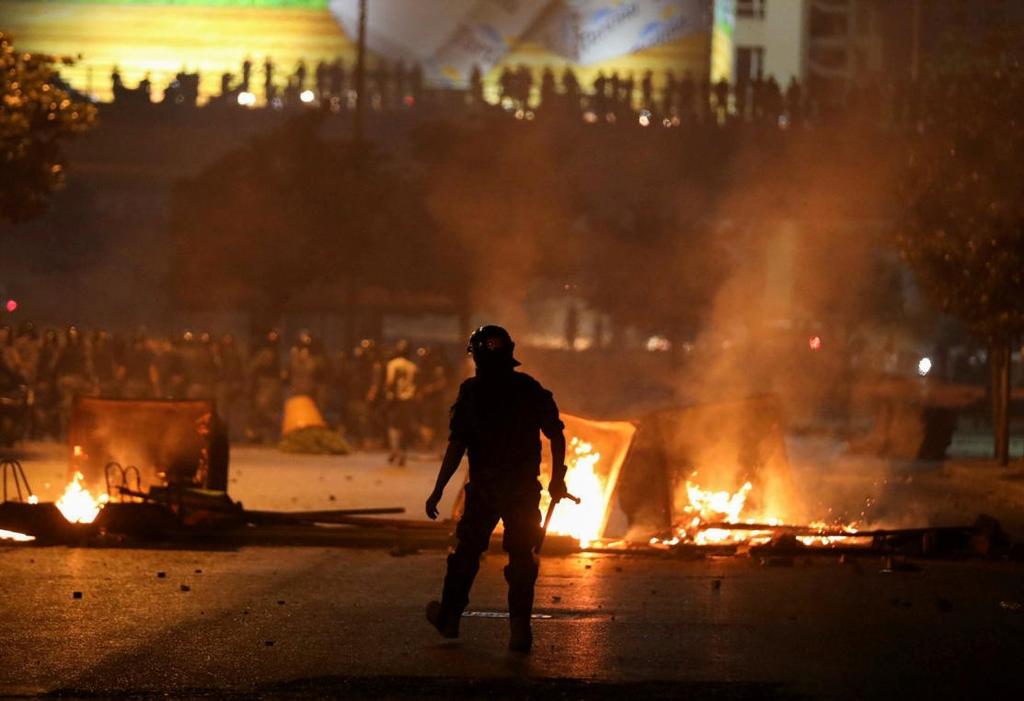

A Lebanese riot police officer walks near a fire during a Beirut protest against mounting economic hardship
(Photo: Reuters)
"Lebanese want the central bank to control the dollar exchange rate vis-a-vis the Lebanese pound and to preserve the value of their salaries and savings," he told the meeting.
Former prime ministers Hariri, Najib Mikati, and Tammam Salam said the real threat to stability may come from the deteriorating economic and financial situation and, "this cannot be solved by large meetings that do not have a clear agenda".
A senior United Arab Emirates official (UAE) said Lebanon was paying the price of deteriorating ties with wealthy Gulf Arab states as it struggles to cope with a deep economic crisis.
Gulf states have long channeled funds into Lebanon's fragile economy but they are alarmed by the rising influence of Hezbollah, a powerful group backed by their arch-rival Iran, and appear loath to help ease Beirut's worst financial crisis in decades.
5 View gallery
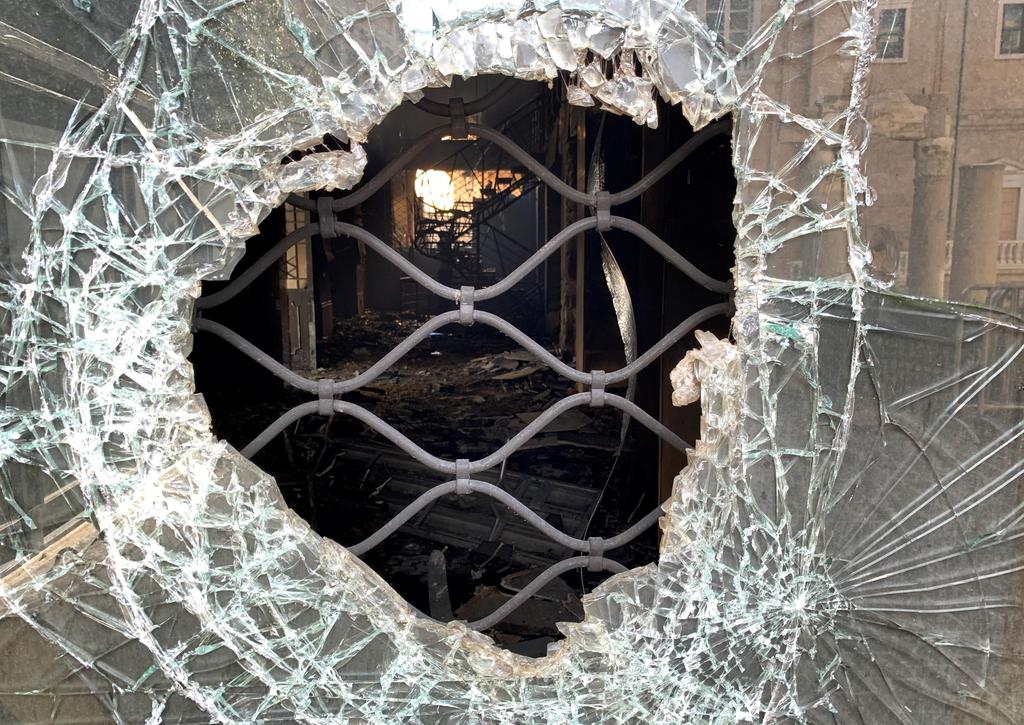

A view shows shattered glass of an abandoned bank branch that was set ablaze during overnight protests sparked by a rapid fall in the pound currency and mounting economic hardship in Beirut, Lebanon
(Photo: Reuters)
Emirati minister of state for foreign affairs, Anwar Gargash, told broadcaster CNBC on Wednesday that Lebanon's "economic meltdown is very worrying" but that the UAE would only consider offering financial support in concert with other states.
"If we see some of our friends, major powers interested in Lebanon, working in a plan, we will consider that. But up to now, what we are really seeing here, is a deterioration of Lebanon's Arab relations and Gulf relations over the past 10 years. Lebanon is partly paying the price for that right now."
Secretary of State Mike Pompeo said on Wednesday the United States was prepared to support Lebanon if it carries out reforms and operates in a way that is not "beholden to" the armed Shi'ite movement Hezbollah, which helped form the current government.
Lebanon's financial crisis is rooted in decades of state corruption and waste.
"We've seen an accumulation of problems in Lebanon and we've seen also a dictation of the political discourse by Hezbollah which really has an army within the state," Gargash said.
He said the UAE repeatedly warned Beirut about deteriorating ties with the Gulf: "If you burn these bridges it'll be very difficult for you to use the huge reservoir of goodwill and the huge reservoir of financial support that Lebanon needs."


